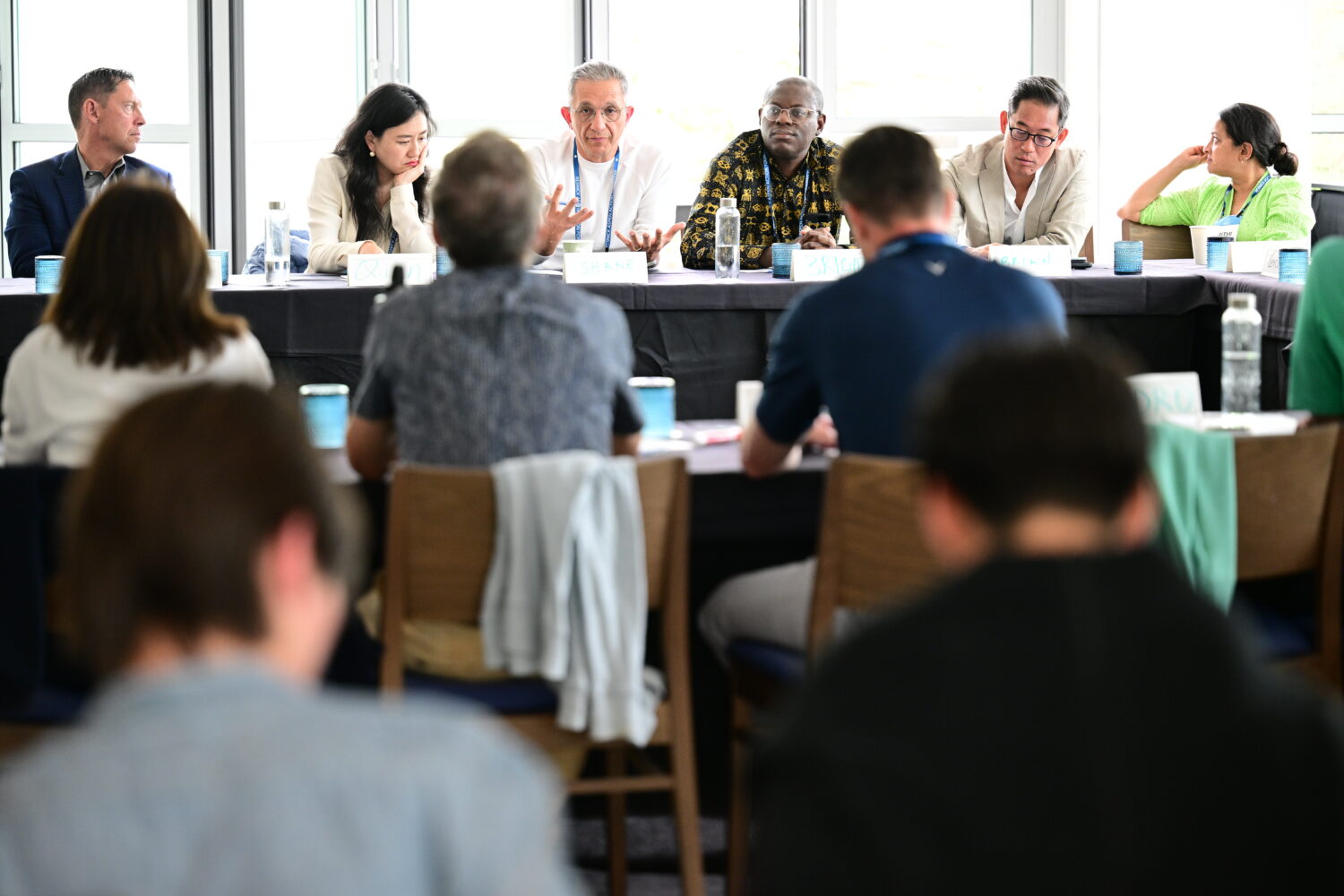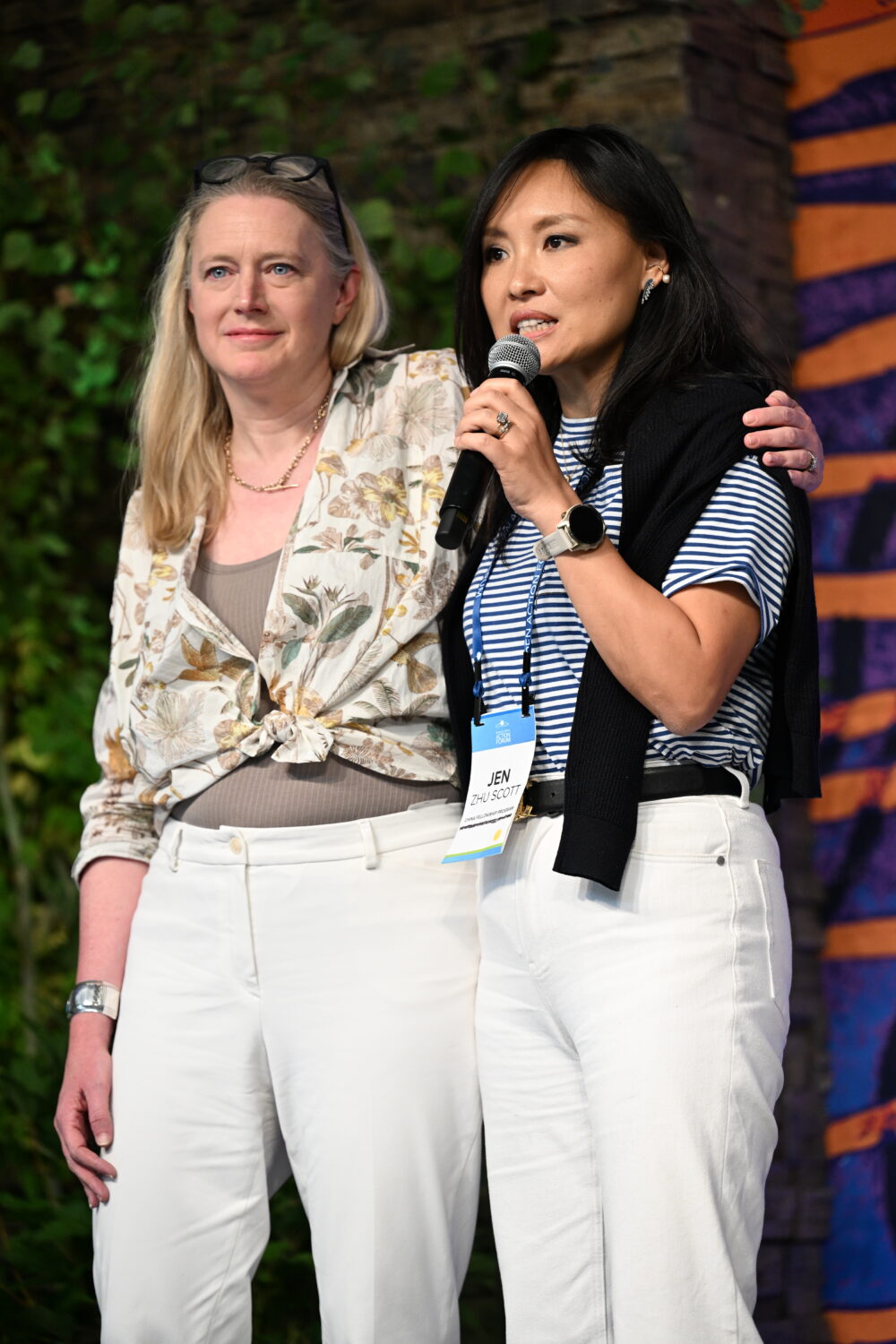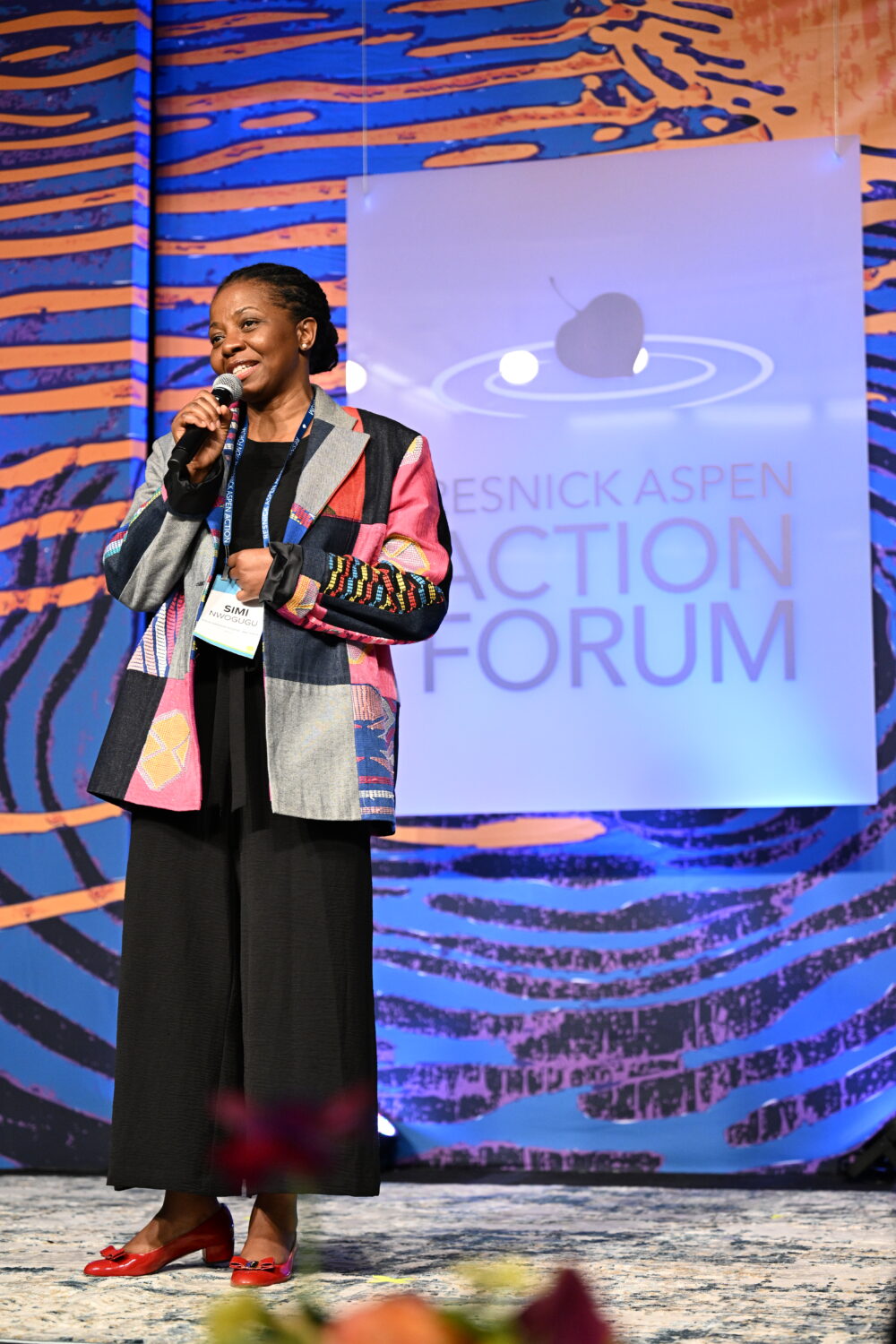The AI Inclusion Imperative: What We Must Do Now
The Digital Divide 2.0: AI, Education, and Future of Work
Briefer from the 2025 Resnick Aspen Action Forum
As artificial intelligence reshapes our world, a critical question emerges: Will AI bridge existing inequalities or widen the chasm between the haves and have-nots? At the Resnick Aspen Action Forum, the Aspen Global Leadership Network convened a roundtable titled “The Digital Divide 2.0: AI, Education, and the Future of Work.” The discussion brought together nonprofit leaders working with young people, diversity and talent engagement specialists, and board-level executives to explore AI’s impact on their work and communities.
One critical intersection is the convergence of AI, education, and workforce development – a nexus with profound implications for global economies. While some countries pour resources into AI readiness, others struggle to keep pace.
Consider the disparities: The United Kingdom has allocated $24 million for AI readiness in schools. Poland is investing $1.4 billion in AI education. Israel has integrated AI learning into its curriculum for grades 4-12. Meanwhile, vast regions of Africa and Asia lack access to basic technologies like computers and reliable internet. Many communities still struggle with electricity access, sometimes relying on rented generators just to power computers. This stark reality underscores a fundamental truth: without intentional intervention, the AI revolution will exponentially widen the wealth gap.
The roundtable dialogue revealed both AI’s transformative potential and the urgent need to address its risks before they become insurmountable. Participants also explored how leaders can rise to meet this pivotal moment. Read on for key takeaways from their discussion.

“AI is shaped by companies, companies are shaped and governed solely (for now) by boards, and boards are not representative.“
– Jocelyn Mangan, CEO and Founder, illumyn and illumyn Impact (Henry Crown Fellow)
The Risks of AI
While much of the AI conversation focuses on exciting possibilities, critical risks remain underexplored:

Jobs and human dignity:
The exploitative potential of AI threatens human dignity in the workplace, potentially displacing workers without adequate safeguards or retraining opportunities.
Critical thinking among youth:
There’s also the concerning prospect that young people, immersed in AI-generated content, may lose the ability to engage in thoughtful, critical dialogue. The risks to authentic relationship-building have become impossible to ignore: mental health impacts among youth are mounting, and legislators are now proposing age restrictions on character-based relationship apps for those under 16, acknowledging that AI-mediated intimacy during developmental years may compromise young people’s capacity for genuine human connection.
Lack of accountability on responsible AI development:
Perhaps most alarming is the governance vacuum. Without proactive regulation and ethical frameworks, companies may not rise to the occasion of responsible AI development.
The technology itself is morally neutral:
a tool that becomes beneficial or harmful depending on whose hands wield it. This reality makes urgent the need for diverse, values-driven leadership in AI governance.
Lack of representation among the architects of AI:
The digital divide isn’t just about access to technology — it’s about who gets to shape the future. When the architects of AI systems don’t reflect global diversity, we risk building tools that perpetuate existing biases and exclude entire populations from economic opportunities.
How can global leaders work together towards inclusive AI development?
As we stand at this technological crossroads, we face a choice. We can allow AI to exacerbate existing inequalities, creating a world where opportunity is determined by geography and circumstance. Or we can choose the harder path: building inclusive systems that harness AI’s power for broad-based prosperity. Despite the challenges, innovative solutions are emerging across the globe. The key lies in reframing AI as a place of co-creation and joy rather than fear. The conversation in the roundtable unpacked the role of leaders in making AI more accessible and inclusive:
Demystify AI:
Involve diverse voices in its development and deployment. The EU AI Act’s requirement for all 27 member states to invest in AI training offers a promising model for systematic, inclusive approach to AI readiness.
Augment rather than replace human workers:
In South Africa, AI-powered call centers help unemployed youth by handling routine inquiries while human operators tackle complex problems. This model creates new opportunities rather than destroying existing ones.
“AI provides us with an opportunity to clarify and distinguish between the purpose of education (lifelong learning, developing critical thinking citizens for democracy) vs. skilling – which needs to be responsive to the needs of the workplace, given the rapid pace of technological disruption. AI gives us both a reason to be concerned, but also a huge opportunity to address this.”
– Sharmi Surianarain, CEO and Founder, Harambee Youth Employment Accelerator (Africa Leadership Initiative – South Africa Fellow)
Invest in infrastructure:
Invest in infrastructure while companies bring modern equipment and expertise directly into classrooms. Workforce training should start small, demonstrating how AI can help employees perform better rather than threatening their livelihoods.
Ethical and Inclusive Governance:
We need governance from people with morals and values, labor protections that preserve human dignity, and educational systems that prepare all young people — not just the privileged few — for an AI-integrated world.

“Inclusive AI is not just about languages and access because translating data built for a North American audience into Swahili still does not serve the needs of the young East African who needs information based on her needs, context and rights. Truly inclusive AI takes into account whose data trains models and who benefits from those models. It is important that governments from every region align to prevent harmful use and ensure economic opportunity for all.”
– Simi Nwogugu, CEO JA Africa, (Africa Leadership Initiative – West Africa Fellow)
Change will move at the speed of our people and technology. The question isn’t whether AI will transform our world — it’s whether that transformation will lift everyone up or leave entire communities behind. The choice, and the urgency to act, is ours.
These insights are drawn from the “The Digital Divide 2.0: AI, Education, and Future of Work,” a roundtable at the 2025 Resnick Aspen Action Forum; part of the Aspen Global Leadership Network’s commitment to fostering values-based leadership for humanity’s next chapter.
About the Aspen Global Leadership Network
The Aspen Global Leadership Network (AGLN) is a dynamic, worldwide community of nearly 4,000 entrepreneurial leaders from over 60 countries. Spanning business, government, and the nonprofit sector, these leaders share a commitment to enlightened leadership and the drive to tackle the most pressing challenges of our times. Through transformative Fellowship programs and gatherings like the Resnick Aspen Action Forum, AGLN Fellows have the unique opportunity to connect, collaborate, and challenge each other to grow and commit to a lifelong journey of impact.
More from 2025 Resnick Aspen Action Forum
In July 2025, over 500 leaders across the Aspen Global Leadership Network (AGLN) community gathered for our largest Action Forum to date. Joined by nearly 100 young leaders, AGLN Fellows from more than 30 countries returned to the enduring questions first posed at the founding of the Aspen Institute 75 years ago: What does it mean to lead with purpose in times of profound uncertainty?
Explore more inspiring content on leadership and change-making from the 2025 Action Forum here.
